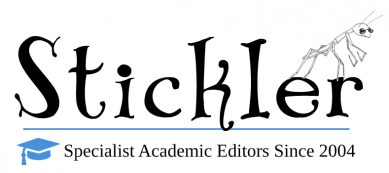Writing an academic paper can be tricky if you aren’t familiar with the conventions and standards that are expected of articles and essays in this genre. Here, we provide some basic tips on things to avoid in this type of writing.
Don’t Skimp on the Citations
When it comes to academic writing, adequate referencing is everything. Citing your sources is an integral part of avoiding plagiarism and ensuring the academic rigor of your work. It also helps to contextualize your paper in the field, and show that you have done your background work and know which gaps your paper sets out to fill. In addition, it’s important to style the in-text citations, the reference list, and other aspects (such as figures, tables, and overall formatting) according to your school’s preferences, or the preferences of the journal you are submitting to. A professional editing company (such as ours!) can help with this aspect.
Don’t Forget to Ask Peers to Read Your Paper
One of the most common mistakes among academic writers is forgetting to ask peers in their field to look at their paper. Asking trusted colleagues and mentors to read your work is a great way to get feedback on both the content and the clarity of your paper. These readers might discover an important part of the argument that you’ve missed, notice a piece of cited research that has been discredited, or be able to suggest ways to make your study even more robust. It’s often a good idea to start a group of trusted peers who read each other’s work regularly, so you know who to turn to when you need it and are frequently exposed to other writing styles and research.
Don’t Write in a Convoluted Style
Academic writers often get caught up in the jargon of their specialized field, using complex sentence structures and overly verbose discussions that can throw the average reader off. Not only is it important to remember your audience, but writing in a clear, to-the-point style will help to ensure readers can get to the heart of your argument without having to pick through lots of unnecessary verbiage and irrelevant detail.
Don’t Skip the Professional Proofreading
Hiring a professional proofreader is a great decision when it comes to academic writing. A proofreader will check your paper for clarity, grammatical and spelling mistakes, and use of English, as well as ensuring your work conforms to the relevant style guidelines. Having your work proofread before you submit it can help to increase the readability and professionalism of your paper overall, and ensure that reviewers, editors, or professors are able to assess the work itself, rather than being distracted or even put off by clumsy writing, stylistic errors, or spelling mistakes.
